MercoPress. South Atlantic News Agency
Stories for August 2019
-
Saturday, August 10th 2019 - 07:42 UTC
UN climate change report: farming and eating habits must change to save on land and water
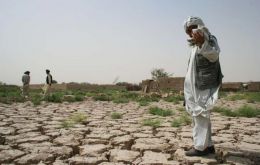
The way the world manages land produces and eats food has to change to curb global warming or food security, health and biodiversity will be at risk, a UN report on the effects of climate change on land said.
-
Saturday, August 10th 2019 - 07:37 UTC
US approved the nomination of Bolsonaro's son as next Brazilian ambassador in Washington
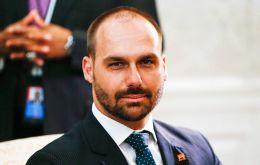
Brazil President Jair Bolsonaro said on Friday the United States has approved the nomination of his son Eduardo as ambassador to Washington.
-
Saturday, August 10th 2019 - 07:32 UTC
China's growth vulnerability to US tariffs exposed by the IMF
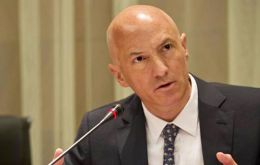
China's economy already is slowing amid the trade conflict with the United States, but if Washington were to ramp up tariffs even further it could cut Chinese growth sharply, the IMF warned on Friday.
-
Saturday, August 10th 2019 - 07:25 UTC
Markets sharply lower as Trump says he's “not ready for a trade deal with China”
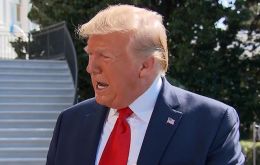
President Donald Trump cast more doubt on chances for a trade deal with Beijing on Friday, signalling he might cancel talks set for September amid an intensifying US-China trade war.
-
Saturday, August 10th 2019 - 07:18 UTC
China's Huawei expanding investment plans in Brazil: new plant in Sao Paulo

Huawei Technologies Co Ltd plans to build a US$800 million plant in Brazil's Sao Paulo state over the next three years, the governor said, as the Chinese telecom giant ramps up its presence in Latin America despite U.S. objections.
-
Saturday, August 10th 2019 - 06:48 UTC
US eliminates cancer warning labels from the controversial glyphosate weed killer

US Environmental Protection Agency has said it will no longer approve warning labels that claim the controversial herbicide glyphosate causes cancer, calling the statement “false and misleading.”
-
Saturday, August 10th 2019 - 06:29 UTC
The Economist on Mauricio Macri's reelection chances in Argentina
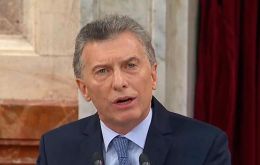
Ahead of Sunday's primaries' mandatory vote, The Economist published the following on Argentine president Macri's chances of reelection, in what seems a very tight competition with Kirchnerism.
-
Friday, August 9th 2019 - 10:59 UTC
Argentina's Sunday primaries, a first test for President Macri's reelection aspiration
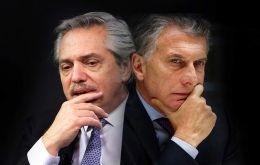
Argentina’s election primary on Sunday will determine President Mauricio Macri’s chances of winning a second term in October, with the country’s embattled peso currency expected to take a fresh beating next week if the business-friendly does not accomplish as expected.
-
Friday, August 9th 2019 - 10:58 UTC
Argentina must not be deaf to Falkland Islanders' voice, says ex deputy foreign minister
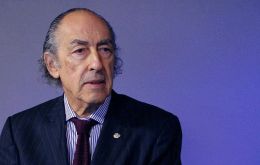
When dealing with the Malvinas issue, and its people, Argentina must stick to its diplomatic milestones and not feel attracted to push or take advantage of the UK which seems bogged in Brexit, or further isolated by the recent trade agreement between Mercosur and the European Union, argues Fernando Petrella, a deputy foreign minister with Guido Di Tella, ex-ambassador before the United Nations and currently head of the Argentine Foreign Service Institute.
-
Friday, August 9th 2019 - 10:50 UTC
Bolsonaro describes an Army officer convicted for torture as a “national hero”
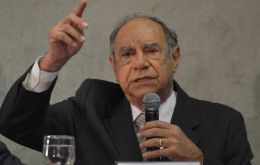
Brazilian far-right President Jair Bolsonaro said on Thursday that an Army officer who was convicted of torture during the country’s 1964-1985 military dictatorship was a “national hero.”
